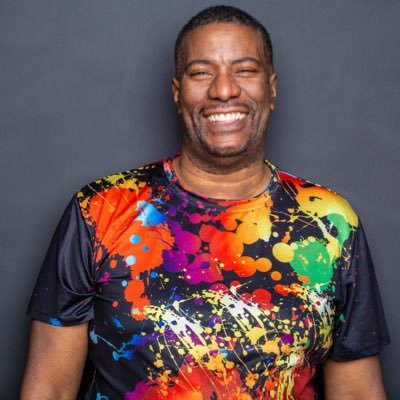Legendary house music DJ, Marshall Jefferson, has been in the industry for decades and was essential in the creation of house music, sometimes being referred to as “the father of house music.” In this Q and A interview, we recently caught up with Marshall to learn about his influences, musical history and get a closer look into his creative process. If you enjoy learning about music artists, check out our epic Nicko McBrain interview here.
When were you introduced to music, and who were your biggest influences?
In 1964, I saw the Beatles on the Ed Sullivan show. It was very exciting, and I got very into them. I didn’t buy any albums though; I just listened to them on the radio. My parents weren’t buying The Beatles – they were buying Motown.
Years later I got a paper route to earn money, but still didn’t buy any Beatles albums. I bought Led Zeppelin, Black Sabbath, Jimi Hendrix, Deep Purple, David Bowie, and Kiss. I got into rock music around nine years old. I was more of a rock guy, but I still liked Motown: The Temptations, The Jackson 5, and Aretha Franklin. My cousin, Bobby Rush, was a Black Panther, and they viewed me as an embarrassment because I was into rock music. At a certain point they’d say, “That’s enough of playing that.”
I always had jobs growing up – from the paper route to washing dishes to bussing tables – I always had more money than all my friends, and would buy my records with that money. I still own all the records I’ve purchased in my life, and I’m never selling them.

How many records do you own?
Over 80,000 records – I have two storage units filled with them! I used to pay somebody to organize them, but he passed away. So now, no one has been organizing them except for me.
When did you shift into music production, specifically?
In the early 80’s – it wasn’t that I stopped liking rock music, I just started going to clubs that had dance music. I went to the clubs and heard the music and DJs, so, I decided to start DJing – playing R&B like Marvin Gaye and The Isley Brothers.
At the time, DJs were doing a trick called “phasing” – playing two of the same records to make it sound like an airplane. While working at the post office, another DJ called Curtis McClain was there, and he taught me all about those DJ tricks. Curtis eventually sang the lead vocal on “Move Your Body” – but no one knows that he used to be a good DJ!
I was working the graveyard shift at the post office, so I wasn’t getting gigs, but once “Move Your Body” came out, I shifted into playing gigs. I was offered $2,000 to fly to England for a show, but I was scared of flying. Eventually, after the fees got higher and higher, somebody made me an offer I couldn’t refuse, and I’ve been flying ever since.
What is your creative process?
I didn’t formally learn to be a musician, but I play all the instruments on my tracks because of technology. I never took music lessons, but on my first 10 records, I played all the instruments myself. I played by ear, like Jimmy Page, Lionel Richie, and Phil Collins.
I got this one idea from Led Zeppelin – the first album they recorded was done at normal speed, but every album after that, they sped up the tape to make it sound like they were better musicians. So for my music, I would record my piano parts at 40bpm and speed them up to 120bpm – and the QX1 one would have a feature where you could lengthen the notes, so it sounded natural. And that was the basis for my entire music career. I’d play it bass, strings, organ, etc., at a slower speed and then speed everything up and stack them on top of each other.
When I do a song, I’ve always had problems working with other people because I hear the whole song finished in my head before I sit at the keyboard. I’m always trying to recreate what’s in my head. So, with other people, they try to add their own spin, and I already have my set way I want it to sound.
When did you feel you really made it in the music industry? What was your “Aha” moment?
At the Street Parade in Switzerland – there were half a million people in attendance. I performed there, and for some reason, a lot of DJs and peers were backstage watching me play. I really blew the house – took the roof off that set.
After one song in particular that I played, a DJ came up to me and asked what it was, so I showed it to him. He took that record, made another record out of it, and got a number 1 hit a few months later. So, that let me know that my peers were paying attention to what I was doing.
For more information on father of house music, Marshall Jefferson, follow him on Instagram and be sure to stream his catalog of music on all major platforms.

